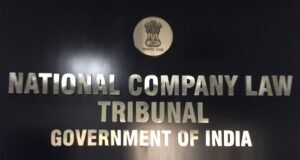Soon Before under section- 304B of the Indian penal code
Written By: Rani Priyanshu
Introduction
The legal provision related to dowry death and the meaning of dowry death is introduced firstly on the Indian penal code under section-304B 2. Also, the provision related to dowry death was inserted in the dowry protection act, 1986. Dowry death is an offense like cognizable and non-bailable and considerable by a court of session. Section -304Bof the Indian penal code also punished. The literal meaning of dowry death is due to the demand of dowry to a woman from her husband and her husband’s parents’ relatives or a family. When she commits an attempt to suicide death or any way of death is caused by the dowry death. Basically, you must have seen this thing about dowry and you have not even gone to any marriage then you must have been seen in the movie. Dowry includes too many cash gifts from the girls, bride family to the groom family at the time of marriage. It includes gold jewelry, furniture, vehicles (four-wheeler or two-wheeler), kitchen utensils, etc. In India, dowry 3 is a great burden on the groom’s family. It causes social evil from years ago. The first national legislation deals dowry in 1961, to prohibit giving and taking of dowry is unlawful or illegal in India. But the failure of this dowry legislation in India cause the death of dowry and this is led to the criminal amendment of the dowry prohibition act, 1983 and 1986 by adding section-304B and 498A of the Indian penal code. This was inserted to dowry death. The offense of dowry death under the provision of section 304B of IPC is the death caused to a woman by any injury, by burning, or by under the against nature within the period of 7 years of her marriage. And that was shown harassment and cruelty by husband or husband relative in relation of dowry is punishable within life imprisonment of 7 years. The things that are not included in dowry in Muslim law like Meher, reimbursement of marriage expenses. In section- 304B, the meaning of “soon before death” in the Indian Penal code means the timing of cruelty and death should not be more different. It is the imminent link between the effect of cruelty and death is based on dowry demand. “Soon before death” is used in section- 304B of IPC and 113B of Evidence Act is present with the idea of a nearby test. No time period is defined under this section of the Indian penal code and also soon before death is defined under this act the word soon before is determined by the courts depending upon the fact and issue of the case.
Interpretation Of Word ”Soon Before”
Under section-304B of the Indian penal code, it can not mean immediately before. Recently supreme court of India said that it cannot be constructed to main immediately for in the case of Satveer Singh versus the State of Haryana, the supreme court also observed that section -304B of IPC does not take any group in categorizing death as homicidal, suicidal, and accidental. This statement was given by the bench of chief justice of India NV Ramana and justice Anirudh Boss. Another case law that the word “soon before her death” was interpreted in the case. Mustfa shahdal Shaikh vs. state of Maharashtra, 2013 4– Supremes court held at the interval between cruelty and death should not the differences in too much. it must be existence of the effect of cruelty based on dowry demand and the. if the incident of cruelty is remote and has become the mental equilibrium of the women.
The supreme court also determines the intention of the law-maker behind the associability of section-304B of the Indian penal code. it was considered the value of law-maker a strict interpretation would lose the very object when it was enacted. Case: Kans Raj verus. state of Panjab, 2005 and another case, Rajinder Singh verus. state of Punjab5, 2015- in both cases the court observed a similar view-both of the cases court said that it should be used there prudence to sort out if the time period between cruelty and harassment and death of the victim would come within the word “soon before”. The court is also renowned that all the essential ingredients are instituted by the prosecution under section- 113B of the Evidence Act compulsorily operated against the accused. Therefore, if all other ingredients are fulfilled any death weather happened by bodily injury or burn other than normal circumstances as per the lawmaker be called dowry death. section-304 B, a stipulated that what inserted the offense of dowry death.
Guidelines Given By Supreme Court
Dowry death or death is a still course of Indian society we all know that what happens if a man/boy is in a government job then the according to his post the dowry demand is decided that how much money will be demanded this job whatever it is. The people of our society should not look in the mirror but dowry demand definitely happens indirectly somewhere in our society. it is wrong to say that such practice happens only in the village is not to true but also happen in the City too.
- Supreme court guidelines on dowry death in the case of satvir Singh versus state of Haryana, Always keep in mind of purpose of the law.
- The protection of section 304 b of Indian penal code.
- The element of section- 304B of Indian penal code must be proved its must be a spoken of under section-113B of evidence at applied “guilty until innocence” whenever it is proved.
- The dowry need not be demanded soon before death in this reference court said that not immediately before.
- Section-304B of Indian penal code does not apply the pigeonhole approach. The meaning of pigeonhole approach is a fixed rule and it’s interpretation will be only according to that of fixed rule. In this approach, limited offence covered under it.
- Precarious nature- It means that if court not identify the right or wrong conclusion in it . Supremes court said that section- 304Bis a precarious in nature and defense should be careful during the preceding of trial.
- The examination of accused under section- 313 of CrPC deals in a different manner in the fair trial by court or court of session don’t think of it as a procedural solemnness.
- Questioning as a by the presentation of accused guilty , the court must put in incriminating circumstances before the accused and the seek his response.
- The use of section-232 of criminal procedure code as discretion obligation. When the session court try is to the case during the trial court take evidence to the public prosecution. After that session court on his on discussion the evidence of public prosecutor and appreciate them. The power of section 232 of criminal procedure code is that must be utilized by trial court as an obligation of best efforts.
- If the session judge feels that I don’t believe of then it continue further so according to their circumstances. That’s why evidence should be here without delay.
- Balance trial- the fundamental right of speedy trial is on time and coat need to balance other concentration.
- Supreme court also said that given guidelines regarding different type of punishment within different decision of the court follow the basic principle of imprisonment.
- The innocent member of their families should not be punished.
Footnote
1: Subs by Indian penal code u/s 304b
2 Ins by Act 43 of 1986, sec- 10(w.e.f.19/11/1986
3 Section – 2 of the Dowry Prohibition Act, 1961(28 of 1961)
4 AIR 2013 SC 851
5 AIR 2015 SC 982
Reference
Indian penal code bare Act, Book
Previous Posts
Convention on women and child rights with recent case laws
False rape cases: Infringement of Male Fundamental Rights




